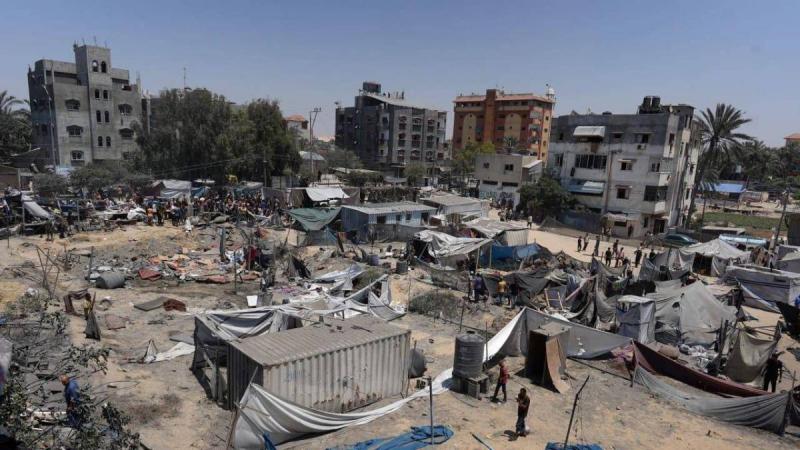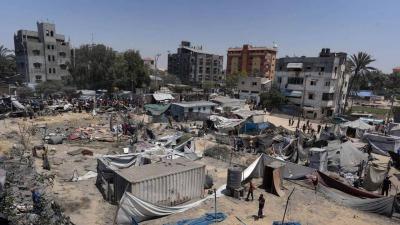Intense shelling continues in the Gaza Strip on Tuesday due to the ongoing war for more than nine months between Israel and Hamas, as hopes for a ceasefire agreement diminish and the "humanitarian catastrophe" worsens, according to non-governmental organizations.
During a meeting in Washington, U.S. Secretary of State Antony Blinken informed two senior Israeli officials of the "deep concern" that the United States has following the Israeli airstrikes in recent days, which resulted in significant loss of life, according to spokesperson Matthew Miller.
As diplomatic efforts have resumed in hopes of reaching a ceasefire agreement, a senior Hamas leader announced on Sunday the halt of ongoing negotiations via intermediaries "due to the occupation's lack of seriousness and continuous procrastination and obstruction, as well as the massacres committed against unarmed civilians," according to his statement.
Doctors Without Borders stated that "recent events exacerbate the humanitarian catastrophe," condemning, along with other NGOs, "Israel's systematic obstruction of aid and its attacks on relief operations." In a report published on Monday, 13 NGOs warned of the "deterioration" of humanitarian aid access to the Gaza Strip as Israeli operations intensify.
The organizations pointed out that Israeli control since the beginning of May over the Rafah crossing on the border with Egypt from the Palestinian side has led to a "complete halt" in the delivery of aid, according to NGOs including Oxfam, CARE, Save the Children, and Médecins du Monde. They noted that Israel facilitated only 46% of scheduled humanitarian missions (53 out of 115).
In northern Gaza, about 20% of families are classified as being in "catastrophic" status and 50% in "emergency" conditions due to the threat of famine, according to Doctors Without Borders, which indicated that aid delivery in these areas is "very limited." Meanwhile, Israel denies that there is famine in Gaza and accuses the United Nations of being responsible for obstructing aid access.




